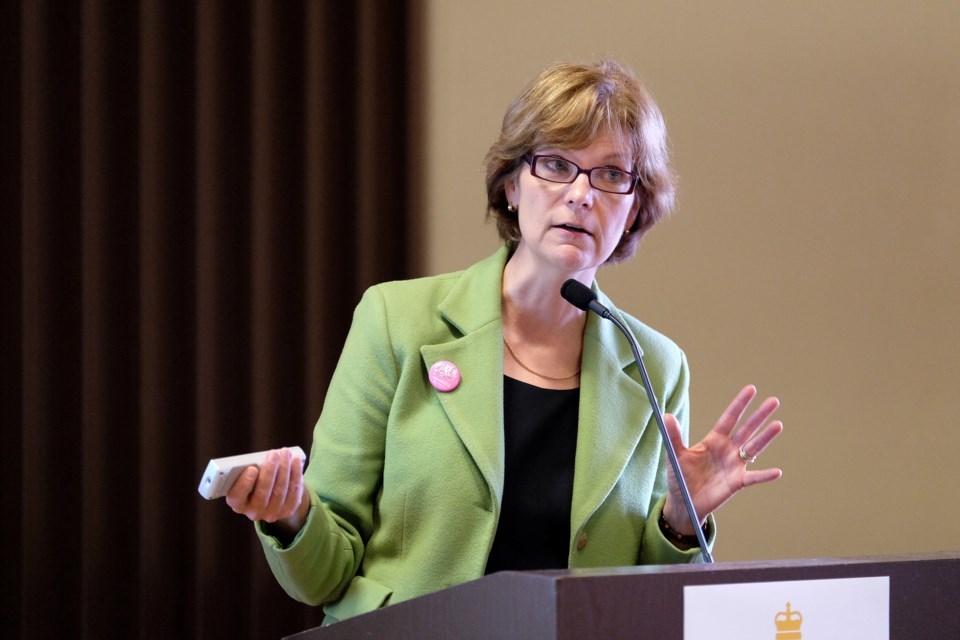New Westminster is advocating for the removal of barriers in home-care services so seniors are better able to age in place.
Coun. Ruby Campbell attended a recent presentation at Century House by B.C.’s then-seniors advocate, Isabel Mackenzie.
“She highlighted the magnitude of the barrier to receiving home support,” Campbell said. “She used an example of a single senior in B.C. with an annual income of $29,000. That individual earning $29,000 is earning too much to qualify for Guaranteed Income Supplement, and therefore would be required to pay $8,900 a year to receive just one hour of daily home support, which would result in 31 per cent of their total income. So I'll say that again: 31 per cent of their total income for one day of support.”
According to Campbell, the majority of provinces and territories in Canada provide home-support services at no cost. For provinces that do charge, she said the amounts are significantly less than what’s charged in B.C.
“We know it is critical for an individual's well-being to remain living in their home, in their neighbourhood and with their community connections,” she said. “But unfortunately, from the seniors advocate, the lack of publicly funded home-care is now leading to premature admissions to long-term care.”
Campbell presented council with a motion that asked the province to invest in public long-term care in order to ensure seniors are well supported in the continuum of care.
She said the seniors advocate’s report, Billions More Reasons to Care: Contracted Long-Term Care-Funding Review Update, found that between 2017 and 2022, not-for-profit facilities spent 25 per cent more on resident direct care and 25 per cent more on resident care than for-profit facilities.
“I ask my council colleagues to support the motion to eliminate barriers to public home-care services and social supports for aging in place and public long-term care, and ask the province to invest more into publicly funded home care and long term care,” Campbell said.
After some suggested amendments to the wording of Campbell’s original motion – which were made to clarify the intent of the motion – council unanimously supported a motion:
That the province eliminate financial and accessibility barriers by investing in more publicly owned and operated and not-for-profit home-care services and social supports required to age in place; and by further investing in publicly owned and operated not-for-profit, long-term care to ensure seniors are well-supported by the continuum of care.
Fontaine, who is a former CEO of the BC Care Providers Association, said “it’s a wonderful thing” any time civic, federal or provincial officials are looking to make investments in home care and long-term care. He said he didn’t want care staff in privately owned and operated sites, many of whom were unionized, to be left with the impression that the city doesn’t support them and support investments in those homes as well.
Campbell confirmed that he motion doesn’t speak to the “good work” done by staff in for-profit facilities. “It's more about investing in public care,” she said.
Mayor Patrick Johnstone said Mackenzie made a “very compelling” presentation at Century House.
“She did tell the seniors about advocacy and how important advocacy was and said: ‘You can talk to the feds about money, you can talk to the provinces about regulations and about money, and you can talk to your city about advocating to the feds and the province about those things,” he said. “That was the instructions she said, so I'm just glad and thank Coun. Campbell for bringing this forward and carrying on that charge from the folks at Century House.”
Campbell’s motion was among a number of motions considered at the Feb. 26 city council meeting that will be forwarded to the Lower Mainland Local Government Association for consideration at its conference and annual general meeting.
Other motions going to the LMLGA related to: having the province provide additional funding for overdose prevention sites in B.C.; asking the province to engage local governments in a comprehensive review of E-Comm; and asking the province to allow local governments to apply commercial rent controls in their communities.



